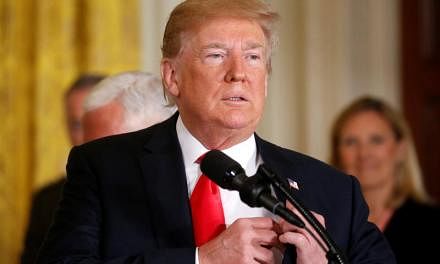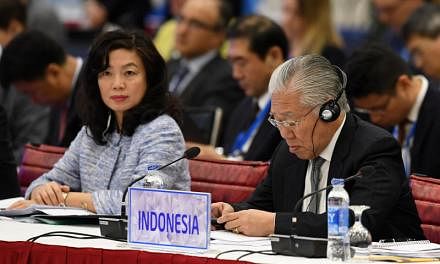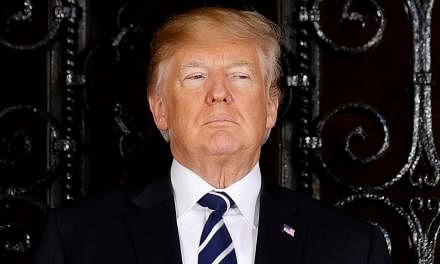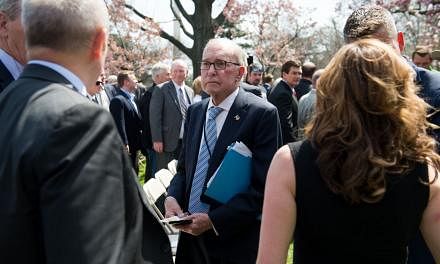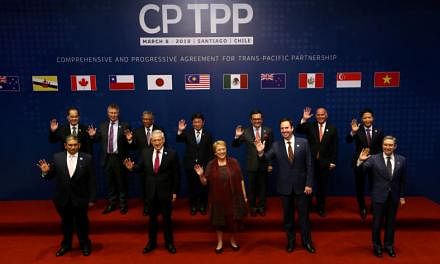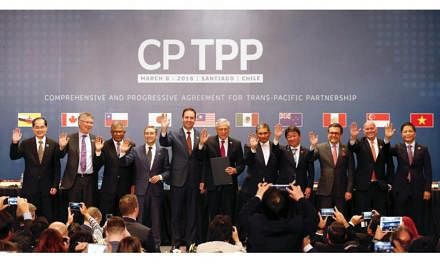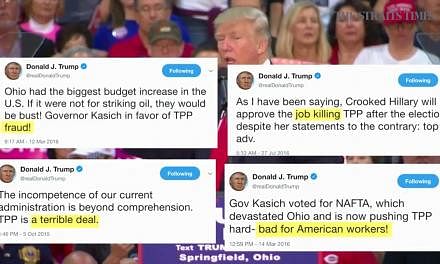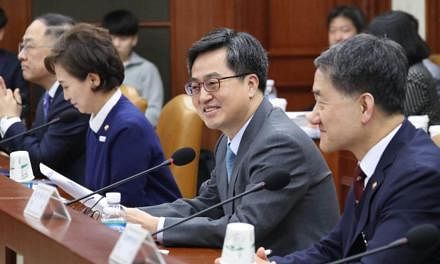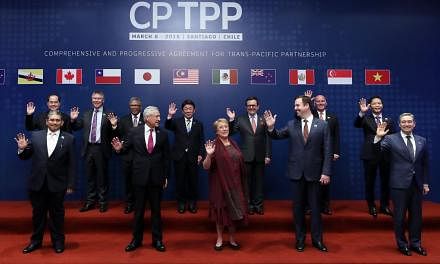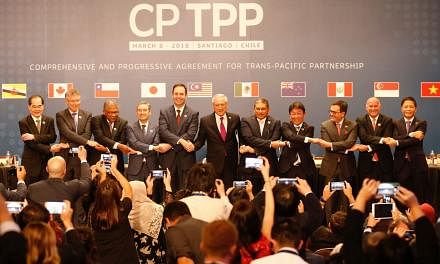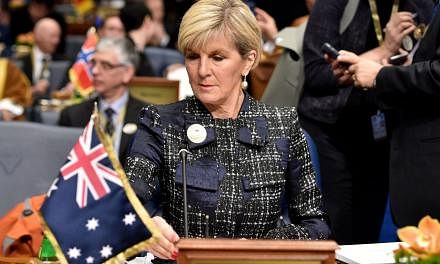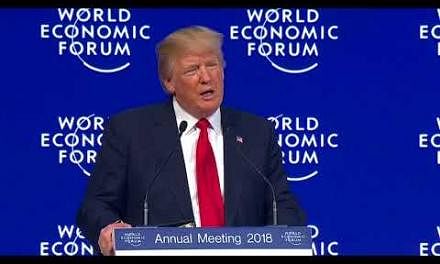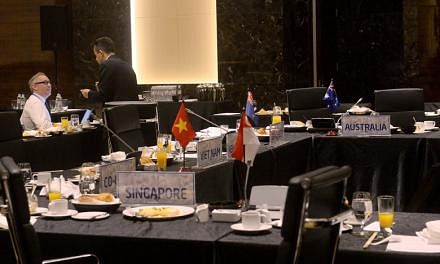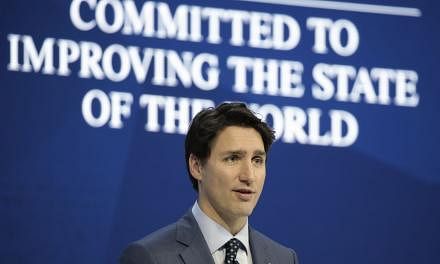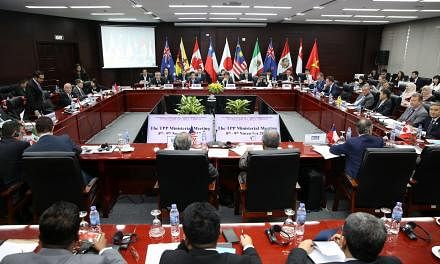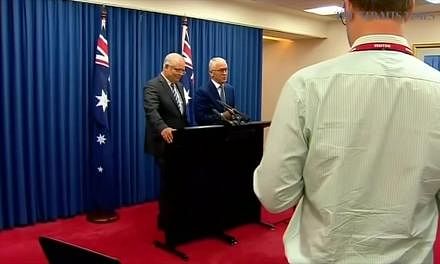The Trans-Pacific Partnership (TPP) has got a new lease of life after the remaining 11 signatories, including Singapore, agreed yesterday to move the trade deal forward without the participation of the world's largest economy, the United States.
The support for the ambitious pact was remarkable as it came on the sidelines of a fractious meeting of the Asia-Pacific Economic Cooperation (Apec) forum in Hanoi, which failed to come up with its usual joint statement after the US took issue with proposed wording.
But away from the main forum, the remaining TPP members released a joint statement agreeing to "launch a process to assess options" to bring the TPP "into force expeditiously, including how to facilitate membership for the original signatories".
Trade officials will complete the assessment by November during the Apec Economic Leaders' Meeting in Da Nang, Vietnam, it added.
The original signatories, accounting for 40 per cent of the global economy, were the US, Australia, Brunei, Canada, Chile, Japan, Malaysia, Mexico, New Zealand, Peru, Singapore and Vietnam. The trade pact was thought to have stalled after US President Donald Trump formally withdrew US participation in January.
In a separate statement, the Ministry of Trade and Industry said Singapore is "encouraged" by its partners' commitment to the TPP, noting that the deal will have a "positive spillover effect" on economic integration in the region.
"Singapore supports the joint efforts by the 11 to sustain the TPP," said Minister for Trade and Industry (Trade) Lim Hng Kiang. "It is important that we keep up momentum. Singapore will participate constructively in this collective process to harvest the TPP's benefits."
Without the US, the deal still has benefits for Singapore, say analysts.
Asian Trade Centre executive director Deborah Elms said gains for the 11 are substantial and even improved due to less competition from US firms. "For Singapore, it gets better access via the TPP11 than in existing agreements, even those that include the same members," she said.
The TPP is deemed a high-quality trade deal as it offers deeper and broader commitments, like cutting most tariffs. A challenge is keeping nations like Vietnam and Malaysia interested, as they joined and agreed to make major concessions mainly to gain access to the US market.
"We will need to ensure that our interests remain protected and the benefits derived from it still outweigh the costs," Malaysian Trade Minister Mustapa Mohamed said.
But for Singapore, there is less impact as it is able to access the US market through the US-Singapore Free Trade Agreement, said CIMB economist Song Seng Wun.
If the TPP comes to fruition, Singapore will also gain better access to markets such as Canada and Mexico, with which it currently does not have bilateral free trade deals.
SEE TOP OF THE NEWS


